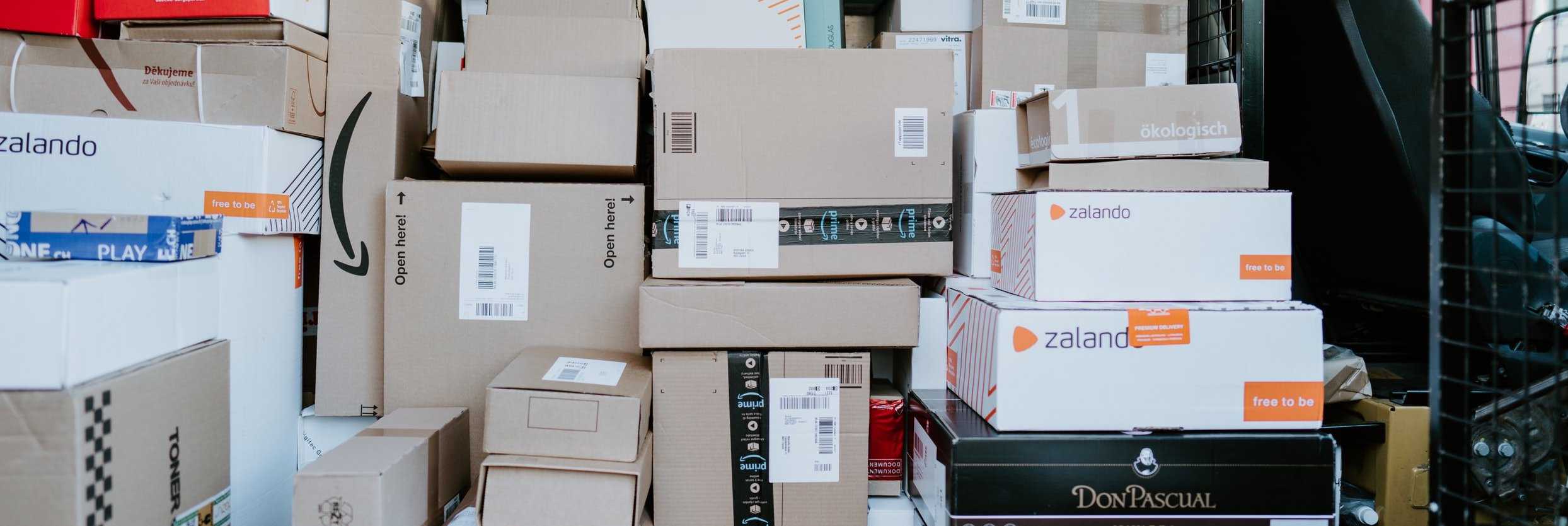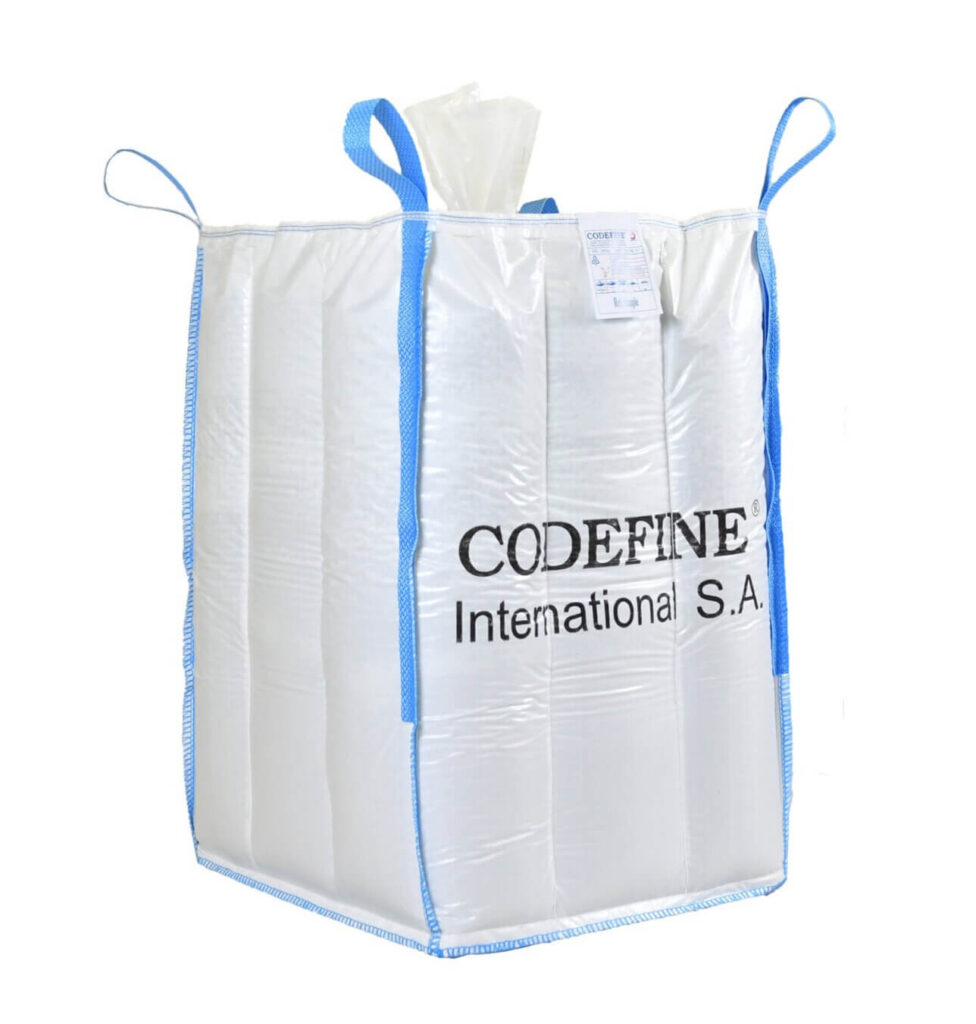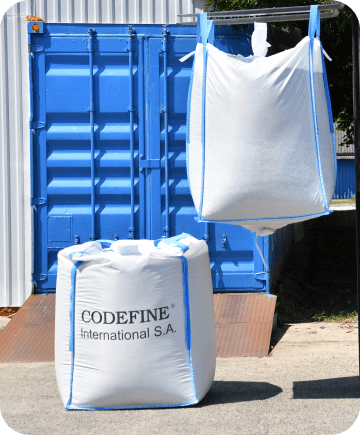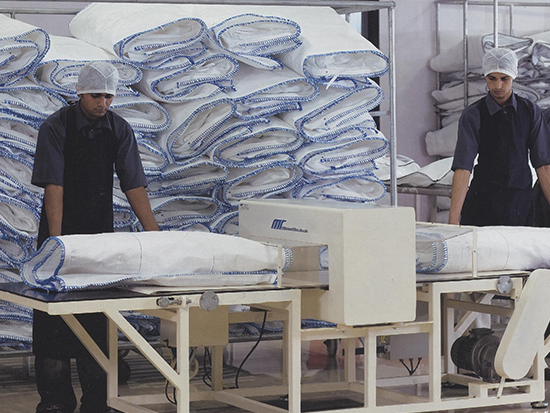Home » Posts Page » Blog » Understanding the Plastic Packaging Tax and How It Affects FIBC Bag Manufacturers

The Plastic Packaging Tax came into effect in April 2022. The main aim of the tax is to encourage businesses to embrace more reusable materials and recyclable alternatives, with a key focus on plastic packaging. The tax affects any plastic packaging that’s manufactured within the United Kingdom, as well as any packaging imported into the country. There are some exemptions to the tax rate, however. Packaging that is made of 30% recycled plastic isn’t impacted by the tax.
Currently, the tax rate is capped at £200 for every tonne of plastic packaging. It applies to any business that imports or produces plastic packaging, making it a real concern for the FIBC bag manufacturing industry. In total, it’s thought as many as 20,000 companies and importers will be affected by the scheme.
Although many industries will need to bear the financial burden of the Plastic Packaging Tax, it’s even more of a concern for any business producing FIBC bags. Any manufacturer that fails to produce bags made from at least 30% recycled polypropylene is going to feel the pinch.
What’s more, this tax is going to be passed onto the import industry. The plastic bag tax will apply to any container being imported into the UK, regardless of whether it’s filled or not. Manufacturers are going to have to contend with increased costs in order to bring their products in line with the latest requirements. Companies should also prepare themselves for changing demand as previously loyal customers seek out tax-complaint alternatives.
The good news is that there are some exemptions to the plastic packaging tax. As previously mentioned, any FIBC that contains at least 30% recycled plastic will be exempt from the new rules. Additionally, any type of packaging that is predominately made from any material other than plastic won’t be impacted by the new tax.

What’s more, any businesses that have manufactured or imported less than 10 tonnes of plastic packaging won’t need to worry about budgeting for the Plastic Packaging Tax. However, if you anticipate that you’ll be crossing this threshold, you’ll need to register with the HMRC.
In order to avoid paying unnecessary tax on plastic packaging, you’ll need to provide comprehensive records to explain your exemption. This includes things like the total weight of any packaging and the materials used to construct bulk bags. If you’re confident that your bulk bags are tax-compliant, you’ll need to provide detailed data to back up your claims and make it clear how much recycled plastic they contain.
If you do feel that your packaging is exempt from the new tax rate, you’ll need to provide clear evidence as to why. Finally, you’ll be exempt from the tax if plastic packaging has been exported out of the country.
Compiling all of this evidence can be time-consuming, but it’s essential if you want to avoid penalties down the line. You can make life easier by keeping records of all FIBC orders, contracts, and audits. Production certifications and proof that FIBCs meet international standards are particularly useful in reinforcing a claim.
Businesses that fail to comply face steep penalties. Along with a fixed penalty, continued non-compliance incurs daily charges. Any organization that fails to comply for more than 12 months can face fines of up to £15,000.


One of the simplest ways to avoid having to pay the Plastic Packaging Tax is to move away from using plastic altogether. However, this isn’t practical for every business, especially FIBC manufacturers.
Nonetheless, FIBC manufacturers can sidestep the Plastic Packaging Tax by ensuring they’re producing bags with a minimum of 30% recycled polypropylene. This recycled material can come from various places. Post-industrial recyclate can be sourced from the material that’s left behind after the production of virgin FIBCs. It’s a cost-effective approach for businesses that produce a large number of bulk bags. Rather than being second-rate to virgin material, these recyclates are incredibly hard-wearing and ideal for more demanding application
Alternatively, there is post-consumer recyclate. This material comes from previously-used FIBCs that have reached the end of their operational life. Again, it’s an option for bigger companies with the ability to sort, clean, and recycle material internally. Once the material has been broken down into reusable polypropylene granules, it can be used to produce robust FIBCs. However, there’s a limit to using post-consumer recyclates. Contamination is a genuine concern, meaning some recycled bags can’t be used in the agricultural or food industries.
Although the Plastic Packaging Tax is a daunting prospect, FIBC manufacturers can take simple steps to reduce liability. Process waste from the preparation of virgin materials offers an easy way to incorporate recycled plastic into manufacturing. Meanwhile, FIBC manufacturers can consider biodegradable materials when producing things like container liners and other FIBC elements.
While the plastic bag tax presents problems for the FIBC industry, it also opens up lucrative revenue streams to those businesses that can rise to the challenge. As more businesses and importers do away with plastic packaging, the need for recycled materials will surge. Increased demand and limited availability make it a seller’s market, meaning FIBC producers can offset rising manufacturing costs with a healthy profit margin.
Adapting to a more sustainable production process also benefits FIBC manufacturers in the long run. Expect governments to introduce even tougher taxes on non-reusable materials in the future. By making the switch to more eco-friendly practices now, companies can bolster their green credentials and make it easier to remain compliant going forward. If you would like to learn about different ways to recycle bulk bags, we have written another article on this topic.